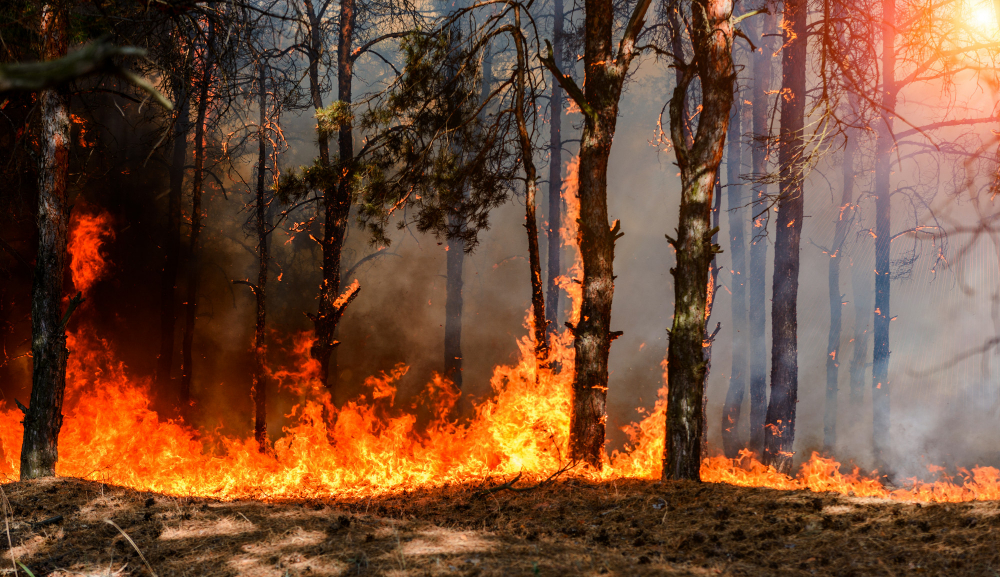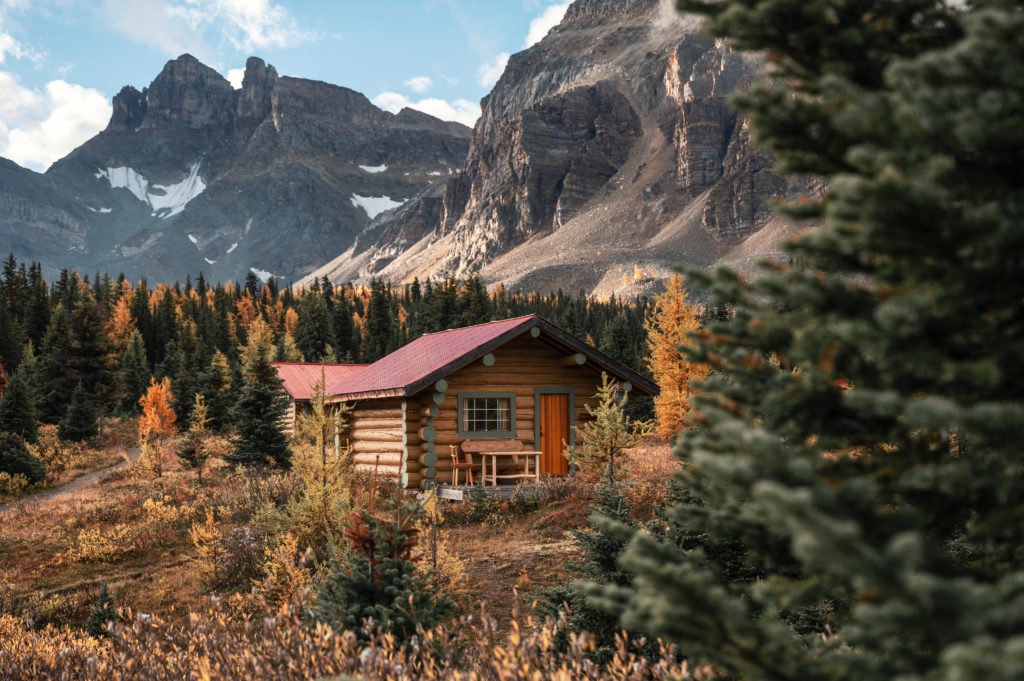It is now summer in Western Canada, and the weather will no doubt soon turn hot and dry. Large and devastating wildfires have become the new normal, with their smoke choking our lungs and casting the midday in an eerie orange glow.
In British Columbia, the last two summers have seen an average of more than 1.2 million hectares burned, and involved firefighting costs of $600-650 million.
Human-caused wildfires (generally between 30-40% of the total number in B.C.) can be the result of industrial uses of the forest/grasslands or caused by irresponsible recreationalists. Industrial use of forests and grasslands during high fire hazards is highly regulated, and recreationalists are subject to fire restrictions or bans and even access restrictions during particularly extreme conditions.
Unfortunately, some people choose to ignore these protections, and human-caused wildfires inevitably do still occur.
Did you know that if you start a forest fire, you could be on the hook for the cost of the government’s wildland fire fighting operations and the value of the lost timber, and be subject to large fines and possibly jail time?
This is the case both for companies who own, lease or occupy land and for individuals who spend leisure time in our forests and grasslands. On top of that, the government can also pursue administrative penalties of up to $10,000, fines of up to $1,000,000 and possibly even imprisonment of those who negligently start forest fires.
Government Wildfire Response
British Columbia’s Wildfire Act and Wildfire Regulation outline the legal responsibilities and obligations to which everyone in British Columbia is subject. It is this legislation that gives the government the power to place fire bans/restrictions in an area and the authorization to carry out fire prevention and control/suppression activities on both public and private lands. It also grants them the power to seek cost recovery from those who start wildfires.
Cost Recovery, Administrative Penalties and Fines
The Act establishes two distinct schemes for cost recovery: those related specifically to leaseholders and owners of lands, and those related to all persons who contravene the Act (this would include recreationalists such as campers or even smokers who throw lit cigarettes out their cars’ windows).
Cost Recovery – Owners and Leaseholders
After the B.C. government has carried out wildfire control activities, be it on Crown land or on private land, the Act permits the Minister of Forests, Mines and Lands to total a number of costs, including:
- the cost to the government of the fire control/suppression work;
- the value of any Crown timber, other land resources and other government property damaged or destroyed by the fire, and
- the costs the government has incurred or will incur to re-establish a free growing stand of timber as result of the fire.
As you can imagine, such costs could be substantial.
Section 25 of the Act allows the Minister to order that a person who caused or contributed to the fire (or its spread) be responsible for these costs if that person:
- holds a leasehold interest on Crown land on which the fire originated;
- is an occupier of Crown land (with the permission of the holder of the lease) on which the fire originated; or
- is an owner or leaseholder of private land on which the fire originated.
Before the Minister may pronounce an order to recover costs, he must provide the holder, occupier or owner the opportunity to be heard.
Cost Recovery and Administrative Penalty – Act Contraventions
Sections 26 and 27 of the Act also allow the Minister to determine that a person has contravened a provision of the Act/regulations (for example, by lighting a campfire when/where it was prohibited to do so or by tossing a lit cigarette butt). And, if a forest fire results, the Minister can order the person to pay:
- an administrative penalty (of up to $100,000);
- the cost to the government of the fire control/suppression work;
- the value of any Crown timber, other land resources and other government property damaged or destroyed by the fire, and
- the costs the government has incurred or will incur to re-establish a free growing stand of timber as result of the fire.
Section 29 of the Act provides certain defences to such a contravention determination, including:
- the person exercised due diligence to prevent the contravention;
- the person reasonably believed in the existence of facts that, if true, would establish that the person did not contravene the provision; or
- the person’s actions relevant to the provision were the result of an officially induced error.
Fine and/or Imprisonment
On top of all this, the Act also provides that a person who intentionally or recklessly causes damage to Crown forest land or grassland by starting a fire in contravention of the Act commits an offence and is liable on conviction to a fine not exceeding $1,000,000 or to imprisonment for not more than three years – or to both.
Differences Between Section 25 and Sections 26/27 Cost Recoveries
The difference between the Section 25 and 26/27 cost recovery schemes was considered in Merwe and Government of British Columbia, Re, 2019, CarswellBC 1450.
In this case, the B.C. Forest Appeals Commission analyzed what degree of fault is required before the Minister (or his decision making delegate) is entitled to make a cost recovery order under section 25. The appellant in this case argued that since section 29 permitted defences for sections 26/27 orders, the same defences should be inferred with respect to section 25 orders.
The Commission concluded that the intent of section 25 is to make such persons responsible for the consequences or outcomes of fires they ignite on their properties that cause or contribute to wildfires.
The Panel ruled found that if the legislation were intended to have a mental element (i.e. willfulness or intent to cause wildfire) or to be subject to a negligence or due diligence analysis (i.e. like section 29 does for section 26/27), then it would have clearly said so. The Panel further found that sections 25(2) and (3) of the Act, when read together, require the Minister to make a finding of fact that the holder, occupier or owner of the land on which the wildfire originated caused or contributed to the wildfire or the spread of the wildfire.
Thus, an order under Section 25 (against a leaseholder/owner) creates essentially a strict liability offence, whereas an order under Sections 26/27 allows for defences as noted above.
Further Prevention Responsibilities of Occupiers, Leaseholders and Owners
Under the Act, commercial operators in British Columbia also have certain proactive obligations and responsibilities when it comes to wildfires.
Anyone who engages in what are considered “high risk actives” (as defined under the Wildfire Regulations), must ensure that they comply with the appropriate restrictions based on the current Fire Danger Class rating.
Restrictions can include but are not limited to maintaining a designated fire watch person for one to two hours following the high risk activity, and can go as far as limiting or prohibiting the high risk activity completely.
Consequences for Causing or Contributing to a Wildfire
What are the practical consequences of all this for people who cause wildfires? In the past, very few were ever charged, fined or taken to court.
Between 2006 and 2013, only 34 contraventions were concluded (with a further 15-20 still in various stages), resulting in $30,000 in penalties and $2.9 million in damages/cost recovery. These included:
- $2.1 million from Telus, which in 2013 negotiated this settlement for the fire control costs and the loss of Crown timber that resulted from a 2006 fire that it caused.
- A fine of $3,000 each for two Alberta men who let off fireworks near where the 2006 West Kelowna Blue Grouse wildfire was started.
- A fine of $3,000 for Mike Barre, who carelessly discarded a cigarette that caused the 2003 McLure-Barriere wildfire, which destroyed 73 homes and a sawmill.
With the increasing number of wildfires and resulting firefighting costs and damage, however, there are signs that the government may be stepping up its efforts to recoup the substantial costs that it incurs to fight human-caused wildfires.
In 2017, the Minister found Brian Cecil Parke responsible for a fire that broke out on his property west of Kamloops and ordered him to pay nearly $1 million of firefighting costs. Parke appealed this determination, and in April 2019, the B.C. Forest Appeals Commission ordered that he pay just more than $500,000 (after Parke and the government reached an agreement on the appeal).
That appears to have been the largest cost recovery effort since the Minister charged Robert Unger – who had built a campfire on land he owned (contrary to an open fire prohibition) that caused a large forest fire – the full cost of its firefighting efforts: $861,356.
We will likely see more such efforts in the future.
UPDATE APRIL 30, 2020
The Government of British Columbia has continued to fine and seek cost recovery against those who have caused forest fires. Two cases so far in 2020 demonstrate how significant the consequences can be.
In a matter that is still before the B.C. Forest Appeals Commission, J. Sarver Trucking Ltd. is appealing an order that they pay an administrative penalty and fines totaling roughly $14,000,000 in respect of a forest fire that was discovered in the Peace region in April, 2016.
Finally, in March 2020, the B.C. Forest Appeals Commission released its decision in CN Rail’s appeal of an order of administrative penalties and fines totaling approximately $16,000,000. The fire in question started on June 11, 2015 near Lytton, B.C. as a result of rail cutting activities during an “extreme” fire hazard. The Fire Centre Manager ordered CN to pay, among other amounts, $8,971,289.75 in respect of the value of Crown timber, grass land resources, and other forest resources damaged or destroyed in the fire. CN accepted responsibility for their contraventions and the administrative penalty, but disputed the amounts assessed against them for fire control costs and the value of resources lost.
After reviewing the evidence, including from experts retained by both sides, the Commission denied CN’s appeal. Interestingly, the Commission panel actually increased the amount CN owed in respect of the Crown timber, grass land resources, and other forest resources damaged or destroyed in the fire. It is exceptionally rare to see an appeal not only not succeed, but have appellant end up owing more. This decision appears to have been done at the Commission’s own volition – the B.C. Government did not cross appeal, and their counsel does not appear to have argued for the higher amount in the hearing. Rather, the Commission varied the amount owing based on an Agreed Statement of Facts between the parties in the hearing.
Implications for Outdoor/Adventure Businesses and Outdoor Recreationalists
Lease holders and occupiers of Crown lands in the outdoor/adventure industry should be aware of the consequences that can result if they are found to be the cause or contributor to a wildfire.
These costs are potentially significant, especially as section 25 offences are strict liability, and defences like due diligence are not available. It is vitally important to keep this in mind when considering whether to engage in certain activities during high fire hazards and what precautions should be instituted in light of the wildfire risk.
Additionally, those who merely engage in outdoor activities during the summer months should also be aware of the significant consequences they can face if they violate fire bans or cause a wildfire. The cost of fighting a wildfire can be enormous – as is the value of timber lost, the potential fines or administrative penalties and the amount of possible jail time.
Our new normal seems to involve a hot and dry summer. Is that campfire really worth the risk to the environment and your pocketbook?
Ryan Morasiewicz [hyperlink to firm bio] would be happy to speak with you about these or any other potential risks that you or your business face.
Note: This article is of a general nature only and is not exhaustive of all possible legal rights or remedies. In addition, laws may change over time and should be interpreted only in the context of particular circumstances such that these materials are not intended to be relied upon or taken as legal advice or opinion. Readers should consult a legal professional for specific advice in any particular situation.





